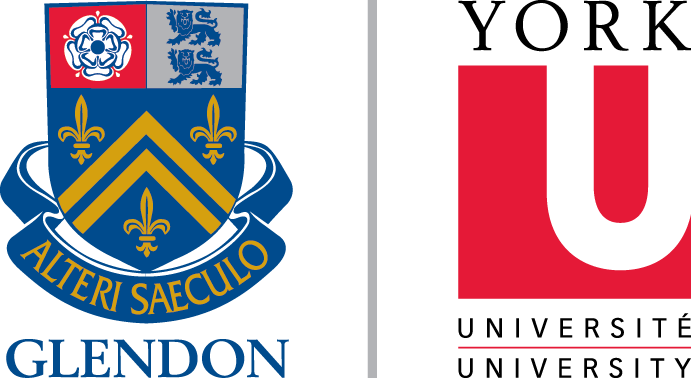On Thursday March 27, 2014, Pro Tem successfully hosted its inaugural speaker event, titled Cocktail Journalism: What It Takes to Get Into the Mix. Pro Tem was York University’s original student newspaper, founded in 1962; now, it carries on as Glendon Campus’ bilingual newspaper. Cocktail Journalism was an event designed to bring together Glendon alumni who have since gone on to become journalists, editors, documentary filmmakers, and freelance writers. The idea behind Cocktail Journalism was to have these alumni return to speak about their experiences in the journalism and media industry, and to offer advice to Glendon students.
Six speakers attended the event: John Spears, Ed Drass, Larry Krotz, John King, Christopher Hume, and Charles-Antoine Rouyer.

John Spears presented first, and introduced some themes that would recur throughout the night. Spears reminded us that “the whole business model of journalism is crumbling beneath our feet”, as the Web continues to expand and social media begins to adopt traits that used to be exclusive to TV, radio, and newspapers. The second was “the Achilles’ heel of journalism”, both cautionary and challenging: “we are always looking for the story we know.” He urged aspiring journalists to be adventurous, to be insightful, to look for the story we haven’t heard yet.
Ed Drass presented next, and reminded the audience of how and why journalism is still, at its core, a human business. From his first newspaper job with York University’s Excalibur to his “Traffic Guru” commuter issues column in the National Post, he paved his career path by talking to people and connecting with them; he advised the audience not to lose sight of the human element in journalism and media.
Christopher Hume offered some humorous insight into the realities of being a journalist: “it’s either the best job in the world, or the worst job in the world. […] If you don’t really, really want this job, don’t do it.” For those who are not wholeheartedly pursuing journalism, the work can be exhausting and soul-crushing—but for those who are, it’s a lot of fun. “What you talk about is what you believe in,” he said, explaining that it is this crucial point that makes university a good prelude to journalistic work: at university, students begin to discover what they stand for.
Larry Krotz and John King, who first met each other on their first day at Glendon, described the changes in the industry and the challenges overcome. John King reminisced about his time as Pro Tem’s managing editor, and the challenges presented then in technology versus the challenges presented now. Their presentation pointed out just how much technology is shaping the future of the industry. Nowadays, a journalist does not simply write the news; there are videos to be shot and Facebook pages to maintain and Twitter feeds to be updated by the hour. “If I were starting now,” said King, “I would be terrified. But if I were twenty years old and starting, I don’t think I would be.” According to Krotz and King, the landscape of journalism has changed drastically before, “and we figured it out”. It will change again, and new journalists will once again rise to the challenge of catching up.
Lastly, Charles-Antoine Rouyer gave a presentation focused around the metaphor of information as food for thought. “We are the cooks”, he said of journalists and others in the media industry. “That is the role of media in the world.” He lamented that a drawback of social media taking the place of established news services is that “there is more and more fast-food for thought”. If a person is only receiving news off their Twitter or Tumblr or Facebook, they are trapping themselves in a micro-bubble. “Technology isn’t all there is,” he said, warning against the short attention spans people are developing due to being constantly plugged in. “Multitasking? I don’t believe in it. […] Relearn to concentrate.” Quality news, like good food, requires time to prepare and appreciate. Rouyer encourages his audience to relearn to concentrate on quality writing.

After the main presentations, the alumni mingled with the attendees, answering questions about their presentations and sharing further experiences from their careers. Afterwards, a Q&A session was held, whereupon an interesting question was fielded by none other than Principal Kenneth McRoberts: “what would you say is the future of print journalism?” The answer was pretty unanimous: whether the news is printed on real solid paper or online does not matter, the format of the newspaper will continue to be important. John King stated that what a person is really paying for when they subscribe to a newspaper is “judgement” of the editorial team. With all the hundreds of millions of articles about any topic from A to Z on the Web, a person simply cannot read them all, and newspapers whether in print, or online, provide a trusted sort of information filter.
It is for this reason more than any other, the speakers agreed, that journalism is still important, and still a human industry. The world is ever-changing and journalists are tasked with making sense of each new permutation. “Your story will be in the paper tomorrow—and the day after that, it’ll be fish-wrap,” Christopher Hume said. “Every day is a new opportunity to be brilliant, to be clever, to bring meaning to something that seems meaningless.” Each news story, column and article is an attempt to make sense of our world.
Sienna Warecki, Assistant English Editor, Pro Tem


